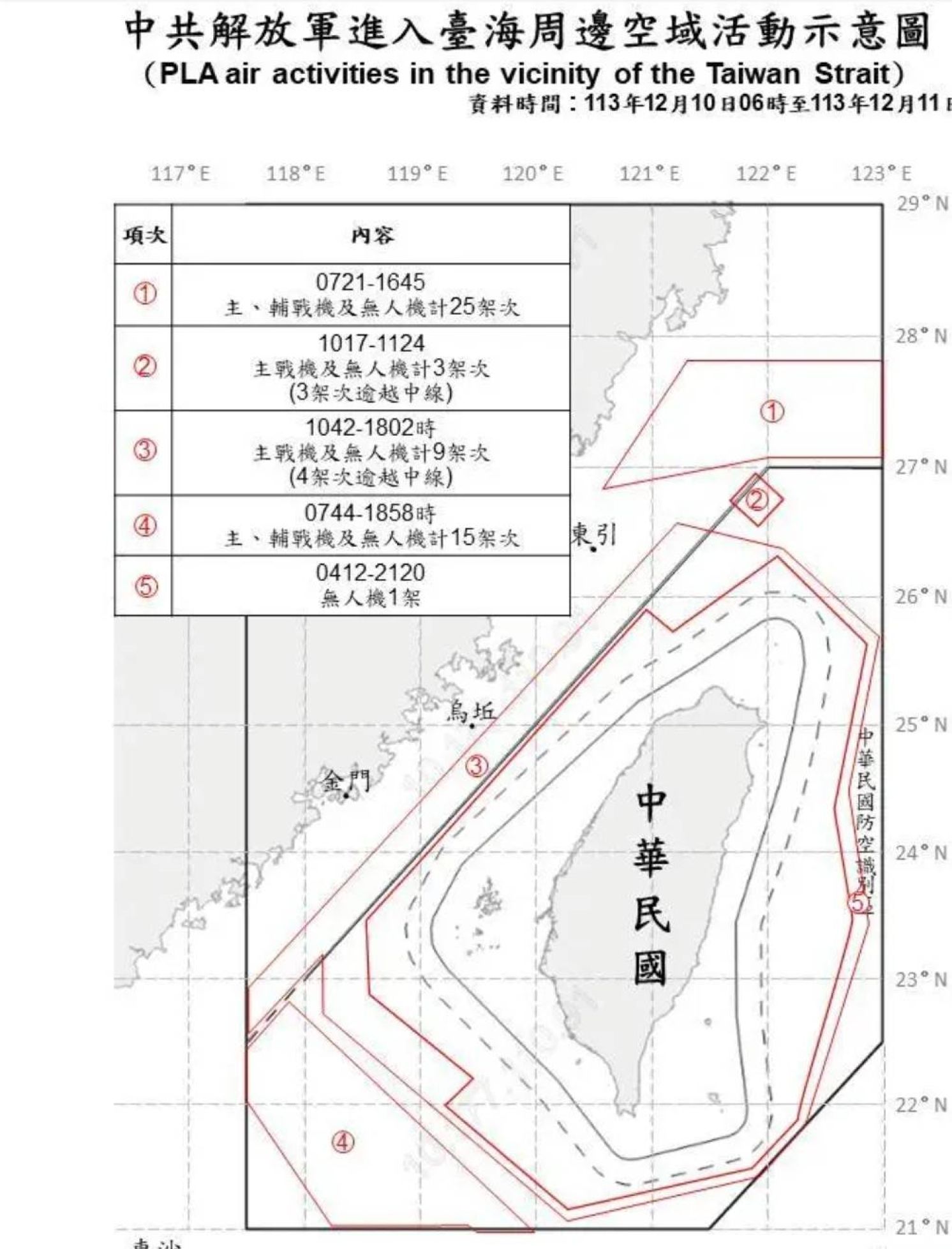
True Threat to National Security: High-Ranking Fools Unaware of Their Own incompetence
United Daily News Commentary, December 12, 2024
Ahead of Taiwan's presidential election in January this year, a nationwide alert was issued, warning mainland Chinese missiles passing over Taiwan, using terms like "missile" and "air raid." However, the satellite launch by the mainland was publicly announced in advance, so why issued an alert? The Ministry of National Defense explained that the rocket, originally expected to fly over the Bashi Channel, had shifted north, but our detection showed that it veered north and flew over southern Taiwan. However, the owner of the "Einstein Probe" satellite, the European Space Agency, immediately announced that the satellite had successfully entered orbit and was operational. Despite deviating over 100 kilometers during launch, it was able to return to its original trajectory, a remarkable breakthrough in space technology. As the elections concluded, more news poured in, and such unreasonable explanations were no longer questioned.
In comparison, the recent "massive military drill" by Communist China was even more absurd. In late November, national security officials, through Reuters, claimed that China would launch "Joint Sword 2024" military drills in response to President Lai Ching-te’s overseas visit. However, even until President Lai's return on December 6, there was no escalation in People’s Liberation Army (PLA) activity. On December 9, the Ministry of National Defense announced that the PLA had reserved seven airspace zones over the East China Sea and extended them until the evening of December 11. The National Security Bureau immediately set up a response center. Later, officials added that the PLA fleet had nearly 90 vessels, with two-thirds being Navy ships.
By the evening of December 10, officials retracted their previous statements, claiming the drills were not solely related to President Lai's visit. They described this as the largest military operation since the 1996 Taiwan Strait missile crisis, with an estimated 70-day duration, aimed at making a statement against U.S. President-elect Donald Trump after the American election. They claimed there were four reasons for the lack of announcement, including the timing of Chinese President Xi Jinping's communication with Mr. Trump and upcoming cross-strait events which would be undermined by such a declaration.
However, there was no supporting evidence. American and Japanese defense agencies did not release any related intelligence, and the Pentagon stated that China's recent activities were within normal limits.
If Beijing intended to demonstrate its power beyond the first island chain, then the most important tool would be an aircraft carrier, yet none were deployed. In the 1996 crisis, mainland China's largest provocation was missile testing off the coasts of Keelung and Kaohsiung, and at that time, their military capabilities were far less advanced. Today, PLA activity near Taiwan has far surpassed that of the past. The repeated references to "the largest post-1996 military deployment" show the lack of understanding of the 1996 Taiwan Strait Crisis.
Officials spreading these claims are likely relying on two things: information asymmetry, where they wield authority and control media narratives, and the public’s short memory. Once the issue fades, the public only remembers the terms, allowing for continued manipulation.
However, regional stakeholders like the United States and Japan have first-hand intelligence on PLA activities, likely more precise than Taiwan’s. Beijing knows that its movements in international waters are closely watched. Taiwan's national security officials, when promoting these exaggerated claims, only expose their lack of understanding, creating a laughing stock in international circles.
Ultimately, the true national security crisis lies in the fact that Taiwan’s top national security officials display such poor understanding about regional security. Their fabricated stories are full of flaws, yet they continue to repeat them, believing that they can fool the public.
In Taiwan's increasingly populist and less-informed society, these tactics may still work to sway public opinion. However, in the eyes of Taiwan’s major adversary, Beijing, and security partners like the United States and Japan, it damages Taiwan’s credibility and decision-making ability. Being seen as a fool by both enemies and friends is the real national security leak, and the greatest threat to national security.